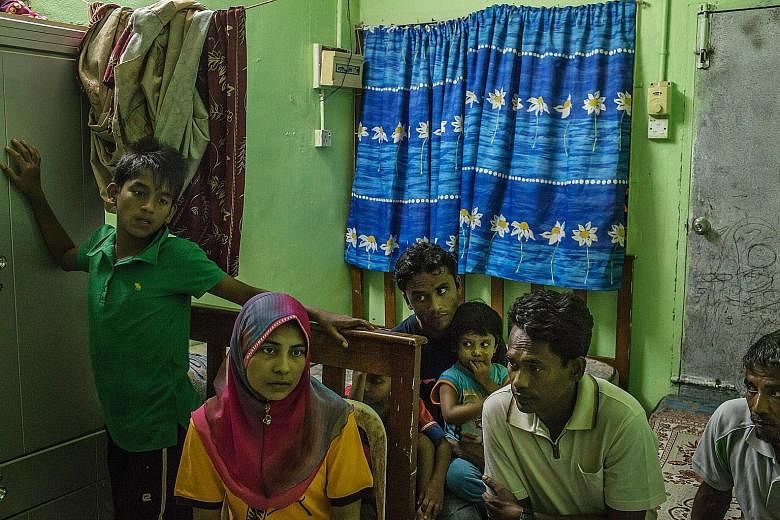GELUGOR (Penang) • The young woman had been penned in a camp in the sweltering jungle of southern Thailand for two months when she was offered a deal.
She had fled Myanmar this year hoping to reach safety in Malaysia after anti-Muslim rioters burned her village. But her family could not afford the US$1,260 (S$1,735) demanded by the smugglers for the journey to be completed.
A stranger was willing to pay for her freedom, the smugglers said, if she agreed to marry him.
"I understood what I must do," said Ms Shahidah Yunus, 22.
She joined the hundreds of young Rohingya women from Myanmar sold into marriage to Rohingya men in Malaysia as the price for escaping the violence and poverty in their homeland.
While some Rohingya women agree to such marriages to escape imprisonment or worse at the hands of smugglers, others are tricked or coerced. Some are only teenagers.
Their numbers are difficult to gauge, but officials and activists estimate that, in recent years, possibly thousands of Rohingya women have been married off this way.
The UN High Commissioner for Refugees reported that a surge of maritime migrants from Bangladesh and Myanmar this year has brought an increase in "abductions and marriages arranged without the consent of women whose passage was ultimately paid for by prospective husbands".
"Hundreds, if not thousands, of women and girls have been forced, sold or arranged for marriage via these trafficking corridors since 2012," said Mr Matthew Smith, executive director of Fortify Rights, an advocacy group in Bangkok that monitors Rohingya refugees.
"For some families, it's viewed as an imperative, as a survival mechanism. The trafficking gangs are treating this as a rather lucrative business."
Mr Smith said that for the women and girls, "being sold or forced into marriage is the least-worst outcome, and that's a problem".
Ms Yunus, who now shares a house with her 38-year-old husband and 17 other Rohingya migrants on Malaysia's Penang island, said she had little choice but to agree to marriage after an uncle who had promised to pay for her journey failed to do so.
"I chose to marry my husband because the smugglers needed money to release me," she said.
"We were afraid of rape. It is better to marry a Rohingya man who can take care of us."
Ms Sharifah Shakirah, a Rohingya refugee in Kuala Lumpur who advises refugees on resettlement, said many of the women held by smugglers fear that if they do not find husbands quickly, "the traffickers might sell them to do sex work" in Thailand or India.
NEW YORK TIMES

